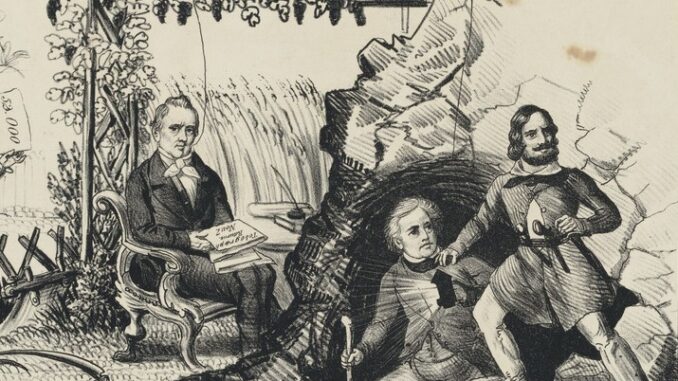
Reprinted from Politico by Zachary Karabell on January 30, 2021.
“The rise of QAnon beliefs in Republican politics has been treated with a degree of shock: How could a fringe Internet conspiracy theory have worked its way into the heart of a major political party?” writes Zachary Karabell in Politico. “The ideas behind the QAnon movement are lurid, about pedophilia and Satan worship and a coming violent ‘storm,’ but the impact is real: Many of the pro-Trump Capitol insurrectionists were QAnon supporters, as is at least one elected Republican in Congress.
“As tempting as it to take the rise of conspiracy theories as a singular mark of a partisan internet-fueled age, however, there’s nothing particularly modern or unique about what is happening now. To the contrary. Conspiracy theories as they say, are as American as apple pie — as are their entanglement with nativist politics.
“Those currents have usually flowed beneath the surface, but for a time in the middle of the 19th century, they broke out into the open, powering a major political movement that dominated state governments, ensconced itself in the House of Representatives and became a credible force in presidential elections. The American Party, popularly referred to as the ‘Know Nothings,’ may not have seized the White House, but its story bears an uncanny resemblance to what’s happening within today’s Republican Party. …
“In their policy goals, the Know Nothings were in part a reformist party representing working Americans against the elite; they ended up passing a variety of laws about working conditions that presaged the union and labor movements after the Civil War. But the movement was founded, and grew, purely on the strength of anger and resentment. And only because of instability in the political system — the collapse of the Whigs and the widening divisions between northern and southern Democrats — was there an opening for them in the first place. …




